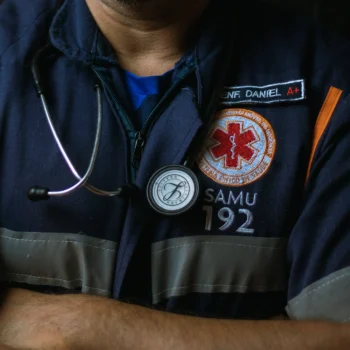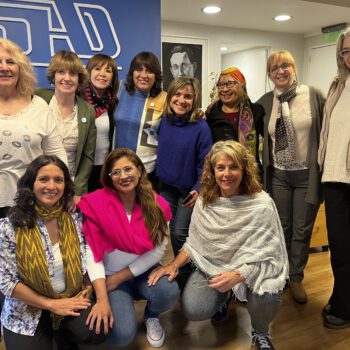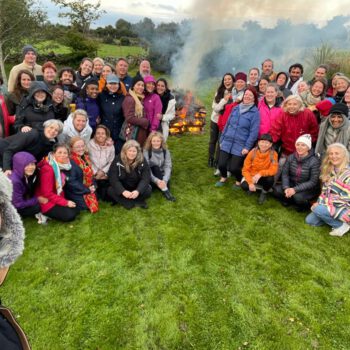A Registered Clinical Social Worker, Rennet’s many talking modalities and body therapies include EMDR, Compassionate Inquiry®, the Trauma of Money and Somatic Experiencing. Her work supports the healing of those facing complex trauma, mood disorders and a spectrum of other issues. Rennet’s therapeutic approach is based on her belief that: “Building on a client’s strengths within a supportive environment is the key to enhanced mental health.”
This post references a short excerpt of Rennet’s story of experiencing and healing marginalization and systemic racism, for herself and others Listen to her full interview on The Gifts of Trauma Podcast.

I was born in a mixed race family in Georgetown, Guyan, which was a British colony for 150 years. My heritage is Russian, Japanese, Chinese, West African, Irish, Portuguese, and Aboriginal; a reflection of colonialism. When I was 17 my parents sent me to Canada, believing that all they’d taught me would keep me free and safe. When I arrived in Canada, another former British colony, I had no idea that the color of my skin was going to largely dictate how I would be seen in this world.
My personal experiences with systemic racism and marginalization led me to specialize in supporting clients having these experiences. My clients know they’ve experienced something that didn’t feel good, but like me, they often don’t realize they’re being marginalized, and have been for a long time. Part of marginalization is being subjected to microaggressions that make us feel ignored, less than, like we don’t matter… Microaggressions pile up and lodge in our nervous systems, making us hypervigilant. When working with a person of color, there are often mixed emotions around constant hypervigilance.
Speaking personally, I was marginalized in almost every workplace. I was always the only person of color, hired to check the diversity box. I was expected to act and be a certain way. At one company, I had braids when I was hired. Later, when I changed my hairstyle, I was pulled into the office and screamed at, “Where are your braids? You were hired for your braids!” Those experiences were so confusing. I didn’t understand why I was being treated that way. Anyone can be marginalized, but looking through the lens of systemic racism, where multiple systems perpetuate the marginalization of people of color, is something very different. You have that bodily awareness when you go into a store. When you get on a bus. When you show up anywhere. For example…
Recently, I was checking out at a new store that I love, where I feel a sense of community. The cashier commented,”it’s cold today.” I replied, “I’m so cold, my fingers are curling up.” We were sharing a moment of humanity, until another cashier intruded, asking, “Where are you from? Why are you cold?” Then she started naming countries, expecting that because I was cold, I should be from somewhere else, that I didn’t belong. Being told all the time that you don’t belong keeps you on the margins. So does sitting in a classroom and not being acknowledged, being deliberately ignored and disregarded by the teacher. So many places of suffering… People asking about my hair, touching my hair, or telling me, “I know a person like you, a black person.” In one of my worst experiences, someone did a lot of research to figure out which boats my ancestors must have sailed on. They wanted me to explain why I have an Asian name. They told me I should have to explain to people why my name is Wong, why my hair is like this… and on and on.
Being marginalized means different things to different people. Yesterday, I heard about a woman with a disability who was being marginalized, because of her disability and her trauma. She had been trafficked for most of her life and she didn’t want to go back to work. She was being marginalized. Things were being taken away from her because her co-worker didn’t understand what was happening. They just saw her as non-compliant. They didn’t recognize her as a woman of disability who didn’t want to work because work meant something else for her. So there’s complexity. When we say the word marginalized, it can mean many things for different people. Marginalized is also being a single mom, a low income employee…
As a social worker, I look through at systems to see how they oppress people and perpetuate oppression. But when I’m talking to someone of color, that’s a different conversation. It requires an ability to understand their situations of marginalization, and how safety is missing in their workplaces and living environments.
Gabor Maté talks about big t and small t traumas. The challenge is, we may not see them as traumas. When we’re out in the world, experiencing trauma microaggressions, our nervous systems are always scanning for danger and what to do next. As our nervous systems develop over our lifetime, we create brilliant survival strategies. We keep using them because they helped when we were very young, even when they’re no longer necessary. Our bodies help us cope in different ways. I help people look back and understand the state of their nervous systems. Flight mode that might look like turning away or not being present. Fight mode might look like a constant state of aggression, or a readiness to fight. In freeze mode, clients who are really frozen have to go slow, to wake up gently. We also develop fierce protectors within us that help us manage. Getting to know all of these parts of ourselves takes a lot of work and a lot of self-compassion as we meet these parts and learn how they work within us.
Once we know, our interventions can include working with our body and learning to feel the states, being able to befriend them, to understand why they’re there, to come back into a place of rest and connection with ourselves. To be able to change and help those parts we are here in the present. So sometimes there’s this dual attentiveness of one foot in the past and one foot in the present; helping clients bridge that by connecting back into themselves, their breath, their body.
The whole idea of connecting into the body can be unsafe for people. Even using the word safe can be so triggering for my clients who’ve never known safe. For someone whose body was never safe, we have to listen to what’s happening, notice how they’re moving their body, being curious and being able to help them slowly titrate, with very small movements. We don’t take big steps because if we do, the body can shut down. We have to be very gentle in how we help people integrate their old survival responses with coming into the present. Help them integrate with a degree of calm and a connection to the first trauma, which caused the disconnection of the self, now back into the re-connection of themselves. How we go about doing that is different for everyone.
– – –
The Gifts of Trauma is a weekly podcast that features personal stories of trauma, healing, transformation, and the gifts revealed on the path to authenticity. Listen to the interview,
and if you like it, please subscribe and share.




Comments are closed.